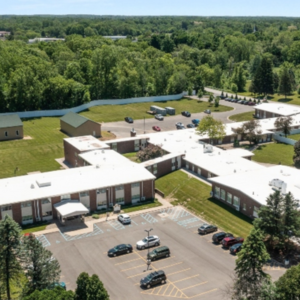Study Shows Only 1 in 5 Receive Medication to Treat Opioid Addiction

More than 80,000 people die of opioid overdoses each year.
According to a new study published in JAMA Network Open, only 1 in 5 U.S. adults with an opioid use disorder received medication-assisted treatment in 2021. An estimated 2.5 million adults have an opioid use disorder. Only 36% received any substance use treatment, and 22% received medications. The findings show that evidence-based medications are underused, particularly in black adults, women, those who are unemployed, and individuals in rural areas of the country,
Overdose Awareness
As yesterday was International Overdose Awareness Day, it is particularly poignant that 107,000 people died of a drug overdose in 2021 (75% of those involved opioids). More than 80,000 people die of opioid overdoses every year.
“Medications for opioid use disorder are safe and effective. They help sustain recovery and prevent overdose deaths. Failing to use safe and lifesaving medications is devastating for people denied evidence-based care. What’s more, it perpetuates opioid use disorder, prolongs the overdose crisis, and exacerbates health disparities in communities across the country.” Nora Volkow, M.D., director of the National Institute on Drug Abuse
What is Medication-Assisted Treatment?
Medications (buprenorphine, naltrexone, methadone) help patients get through the discomfort of opioid withdrawal, and they help to reduce drug cravings. MAT is primarily used for the treatment of addiction to opioids and alcohol. The prescribed medication normalizes brain chemistry, blocks the euphoric effects of alcohol and opioids, and relieves physiological cravings. Recovery from addiction is a process, and the medicines give our patients at Sanford Behavioral Health time to work on recovery without unnecessary discomfort.
The Substance Abuse and Mental Health Services Association (SAMHSA) says the ultimate goal of medication-assisted treatment is total recovery. Evidence-based MAT:
- Improves patient outcomes
- Reduces cravings
- Increases retention in treatment
- Decreases illicit opiate use
- Increases patients’ ability to gain and maintain employment
- Improves birth outcomes among women who have substance use disorders and are pregnant
A medication-assisted treatment program allows patients to improve their overall health. MAT also decreases the potential for overdose and other dangerous consequences of substance use disorders.
Sanford Behavioral Health’s MAT Program
Sanford Behavioral Health’s medication-assisted treatment program combines psychosocial/behavioral therapy and pharmacotherapy to treat alcohol and opioid use disorders. Our psychiatrist-led clinical and medical teams specialize in addiction treatment.
“I see people in so much pain. Our patients worry about their physical health due to their substance use. Also, there are psychiatric issues that accompany substance use disorders. Most of our patients have co-occurring intrusive thoughts, anxiety, and depression. They self-medicate. Our patients seek a psychiatric evaluation and long-term medical and psychiatric care. We want to provide medical services residential and outpatient MAT for opioid use and cravings. And our goal is to stop the pain.” Dr. Gilbert Masterson, Sanford Behavioral Health, Chief Medical Officer
Federal Law requires patients who receive MAT as an opioid treatment program to obtain medical, counseling, vocational, educational, and other assessment and treatment services in addition to prescribed medication. We offer a variety of convenient individual, group, and family therapy sessions so patients can choose from programs that address their specific challenges. Our MAT staff participates in continuing education to ensure that the medical and clinical care provided at Sanford Behavioral Health is comprehensive, individualized, effective, and evidence-based.



